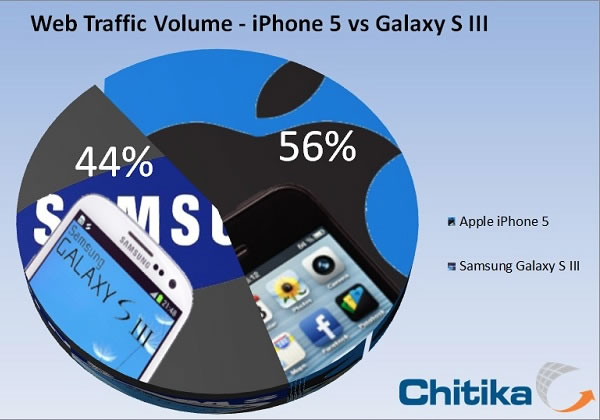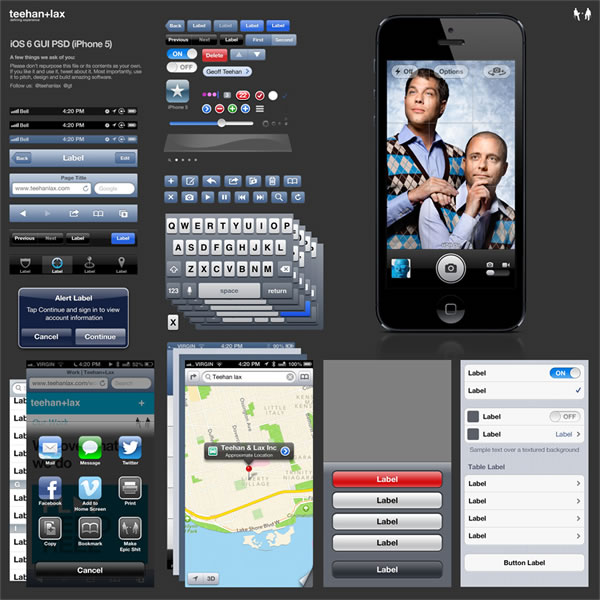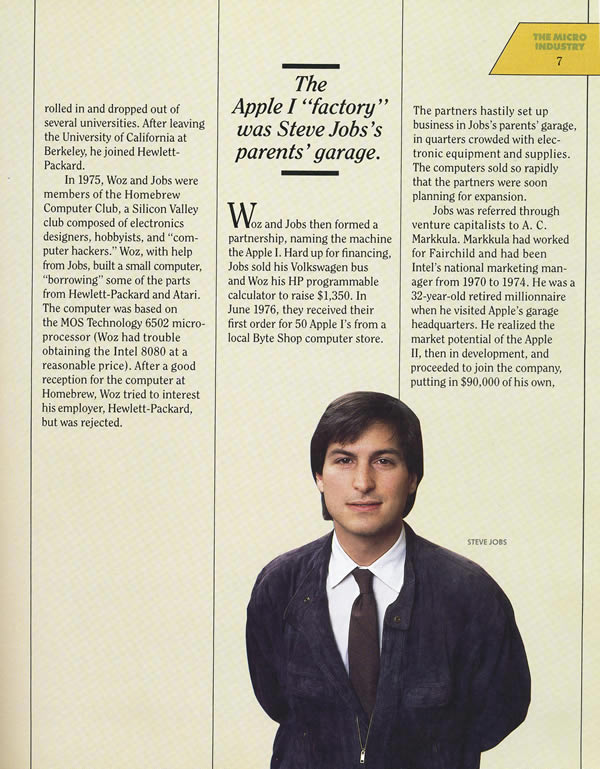iPad Mini Predicted to be Announced on October 23

Rendering of iPad Mini by Martin Hajek.
AllThingsD’s John Paczkowski reports that Apple is likely to unveil the rumoured iPad Mini — a 7-inch-or-thereabouts version of the iPad — on Tuesday, October 23rd at the Town Hall Auditorium on the Apple Campus. He observes:
That’s a Tuesday, not a Wednesday, so this is a bit of a break with recent tradition. It also happens to be just three days prior to the street date for Microsoft’s new Surface tablet and two days before Apple reports earnings for its latest quarter.
iPhone 5 in Big Demand

Based on a “user agent analysis on millions of mobile ad impressions, spanning a 7-day time frame from October 3rd through October 9th, 2012″, Chitika Insights, the research wing of the online ad company Chitika, says that web traffic volume from the iPhone 5 is greater than from the Samsung Galaxy S III — it’s 56% to 44%. It should be noted that the Galaxy S III has been out for 4 months, while the iPhone 5 hasn’t been available even 3 weeks.
There’s more evidence of how well the iPhone 5’s doing: findings released by 451/Changewave Research based on an opinion poll of “4,270 North American consumers” say that the iPhone 5’s sales are breaking the sales records of previous iPhone models.
Teehan + Lax’s iOS 6 for iPhone 5 GUI PSDs

If you use Photoshop for designing iPhone UIs, I have good news: Teehan + Lax have just published their iOS 6 for iPhone 5 GUI PSDs! Best of all, they’re free-as-in-beer because they believe in the “Create more value than you capture” mantra.
UIButton in Depth

If you thought you knew how to put buttons on an iPhone screen, you’d best check out Designing for iOS: Taming UIButton, which looks at the many ways, from simplest to most complex, of doing so.
Source Code for Cheddar

There are many “to-do” lists available for iOS, but Cheddar stands apart for a couple of reasons. For starters, it’s received many good reviews. More importantly — at least to readers of this blog — Cheddar’s source code is on GitHub. From a casual skimming of the code, it looks to be pretty well-organized, with #pragma marks aplenty, short (as possible) succinct methods and all-round readability. If you’ve been wondering how other people are writing commercial-quality apps, this source is a good place to look.
The “Lost” Steve Jobs Speech from 1983

A page from the 1980s book Computer Systems in Business, from my stack of old computer books.
In case you missed all the hoopla surrounding the finding of an old recording of Steve Jobs’ 1983 presentation at the International Design Conference in Aspen, here it is:
Here’s an excerpt from the blog entry containing the recording:
In 1983, Steve Jobs gave a speech to a relatively small audience at a somewhat obscure event called the International Design Conference in Aspen (IDCA). The theme of that year’s conference was “The Future Isn’t What It Used To Be”, which looking back seems all too fitting. Circumstances being what they are, very little is available on the Internet regarding this Steve Jobs speech. In my extensive research, I could find only one recording of this talk, which itself was just posted in June of this year. This talk received a fair amount of attention at the end of August, after it was mentioned in a Smithsonian Magazine article written by Walter Issacson, Jobs’ biographer. However, the recording currently available is not complete. It ends after about 20 minutes, which corresponds with the end of Jobs’ prepared speech. Left out is almost 40 minutes of a follow-up question and answer session where Jobs offered incredible insight into his vision of future technology. I now present this recording to the world so that it may be preserved indefinitely.

















